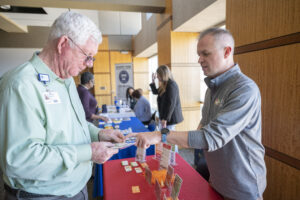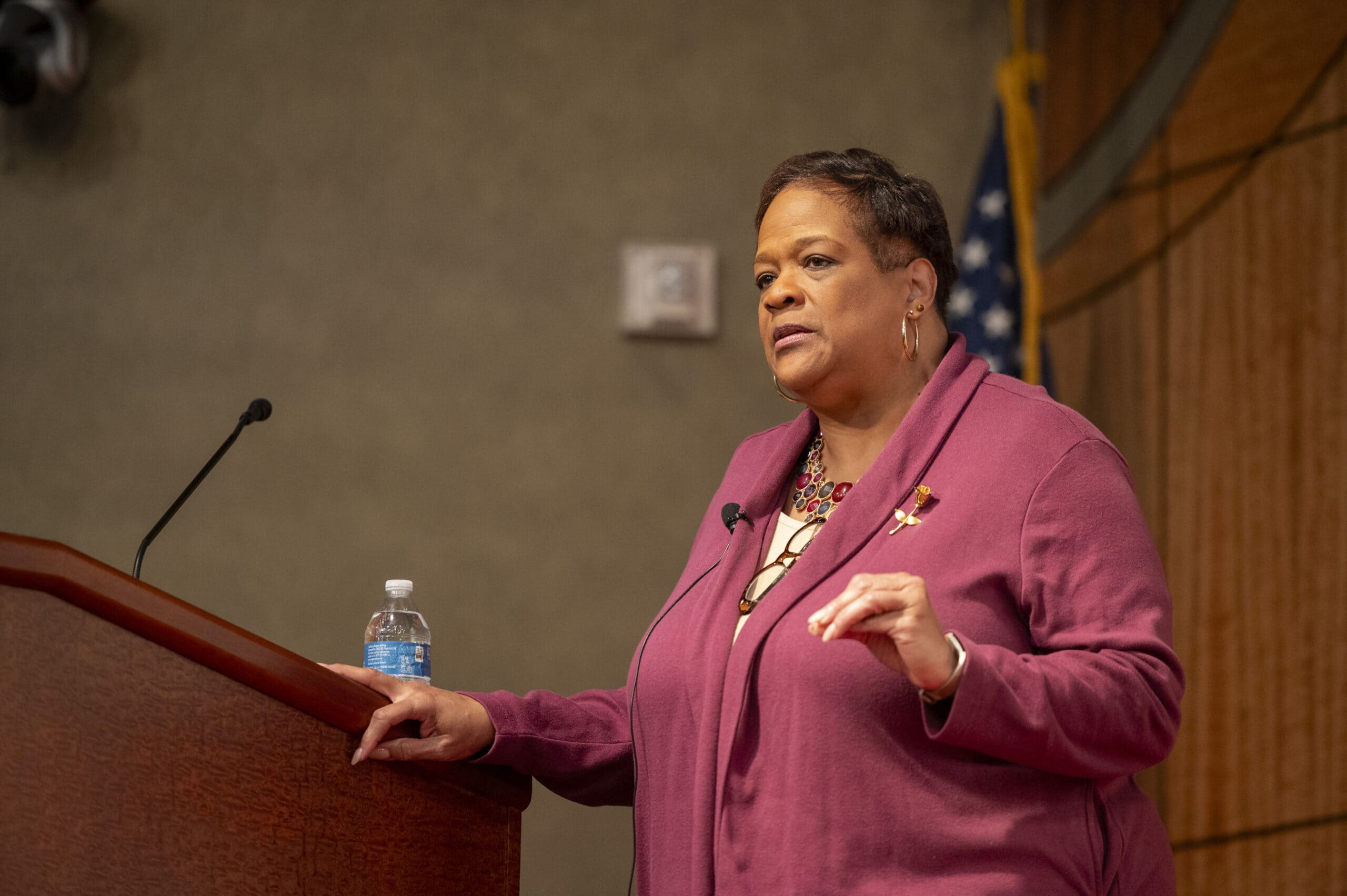UAMS Honors Legacy of Martin Luther King Jr., Kicks Off Service Campaign
| The University of Arkansas for Medical Sciences (UAMS) held a Jan. 30 celebration to honor the life and legacy of Martin Luther King Jr. and to kick off the 2024 UAMS Serves campaign.
The UAMS Serves campaign encourages volunteerism and connects employees and students with opportunities in community organizations across central Arkansas.
Cam Patterson, M.D., MBA, chancellor of UAMS and CEO of UAMS Health, highlighted King’s famous statement that “everybody can be great because everybody can serve,” noting that the civil-rights activist’s words still resonate today.
“I challenge all of you to be a part of UAMS Serves, to carry on the legacy of Dr. King and to be a force of good in this world,” he said.
Stephanie Gardner, Pharm.D., Ed.D., UAMS provost and chief strategy officer, said the university’s mission to improve the health and health care of all Arkansans reflects King’s devotion to service.
“Service is an essential element of the UAMS mission,” she said. “Through our clinical, academic and research work, we are serving our state every day.”

Members of community service organizations attended the event, providing information about their efforts and helping people sign up as volunteers.Image by Evan Lewis
Gardner said many UAMS employees give their time and effort to further help others through nonprofit organizations or community or church activities. The UAMS Serves campaign offers opportunities for those employees as well as for those who wish to volunteer but aren’t sure how to get started.
Members of several community service organizations attended the event, providing information about their efforts and helping people sign up as volunteers. The organizations included the Arkansas Foodbank, Big Brothers Big Sisters of Central Arkansas, Make-A-Wish Foundation, Salvation Army and United Way.
Sharon Ingram, assistant vice president at U.S. Bank and chair of the Arkansas Martin Luther King Jr. Commission, gave a keynote speech that focused on King’s six principles of nonviolence. Ingram said King’s work was the epitome of nonviolence, defined as the use of peaceful means to bring about political or social change.
“Dr. King said the result of nonviolence is redemption and reconciliation,” she said.
Ingram examined how these principles are exemplified in those who show love even in the face of adversity. She cited the example of Emanuel African Methodist Episcopal Church in Charleston, South Carolina, where a gunman killed nine people during a Bible study in 2015. In the wake of the tragedy, the victims’ grieving families expressed forgiveness for the killer, choosing a display of love instead of anger, she said.
Ingram also explained how the practice of nonviolence has shaped her own life. She told a story from early in her banking career about a frustrated customer who made several derogatory remarks as employees struggled to assist him. Ingram told the man that she was committed to helping him, and by the end of their 30-minute conversation, she had solved his problem and gained his respect.
“With the patience I showed to that individual, I won him over that day,” she said.
One of King’s principles states that “nonviolence believes that the universe is on the side of justice.” Ingram said it’s a lesson she’s taught to her children, nieces and nephews, encouraging them to foster change by getting their education and having a voice in the communities where they live.
“People will think about you if you are contributing to your community,” she said.
The event — titled “Shifting the Cultural Climate Through the Study and Practice of Nonviolence: A Celebration of the Legacy of the Rev. Dr. Martin Luther King — was organized by the Diversity and Inclusion Engagement Subcommittee of the UAMS Division for Diversity, Equity and Inclusion (DDEI).
Brian Gittens, Ed.D., MPA, vice chancellor of DDEI, concluded the celebration by discussing one of his favorite quotes from King, who said that all people are “caught in an inescapable network of mutuality, tied in a single garment of destiny. Whatever affects one directly, affects all indirectly.” Gittens said these words transcended the issues of racial inequity and discrimination, describing the common humanity that all people should strive for.
“One of the ways we do this, closing the gaps and ensuring that folks receive the help they need, is through service,” he said.
